Protesters demonstrate at Swiss embassy in Iran
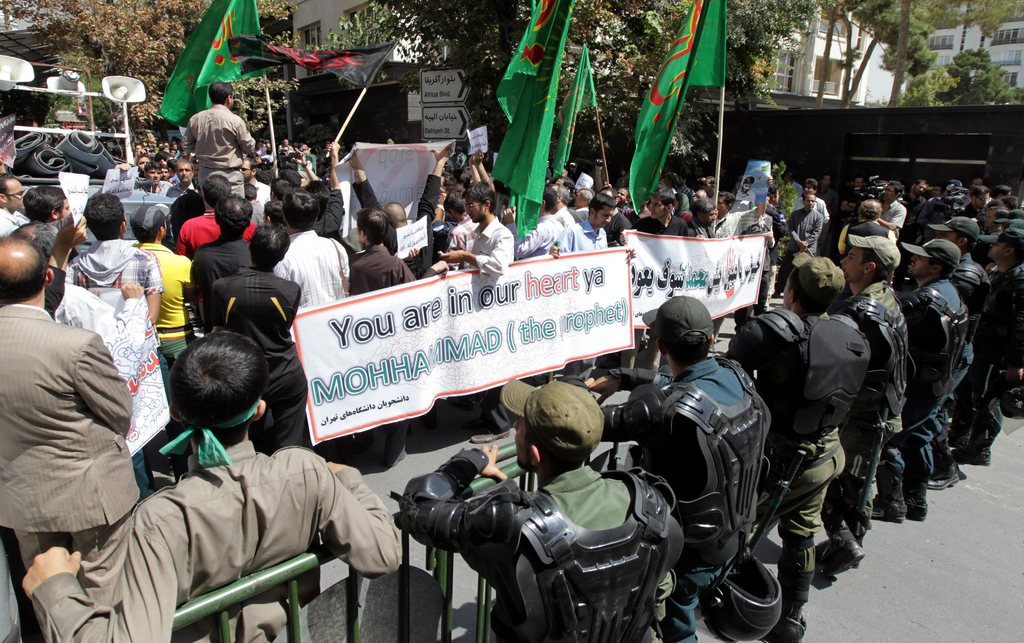
Crowds gathered outside the Swiss embassy in Tehran on Thursday to protest an American film that has sparked violence throughout the Muslim world. The embassy was evacuated as a precaution, but no one was injured.
Switzerland has represented American interests in Iran since 1980, after the United States formally severed ties with Iran in the wake of the 1979 hostage crisis.
The protest, organised by a radical Islamist student group, resulted in the precautionary evacuation of embassy employees and the involvement of more than 200 police and fire personnel who prevented some 500 protesters from reaching the embassy gates.
Cries of “death to America” and “death to Israel” were meant to denounce an American-made film called “The Innocence of Muslims” which commanded the Muslim world’s attention after its trailer was dubbed in Arabic and posted on YouTube. Protesters reacted to the film’s depiction of the Prophet Mohammed in a negative light.
The film was the impetus behind recent protests at the American embassy in Benghazi, Libya, which claimed the lives of American ambassador Chris Stevens and three others. Stevens’ was the first death of a US ambassador abroad since 1979. It remains unclear whether the embassy was attacked amid spontaneous protests against the film or if it was a calculated act of terrorism. American officials suspect it may have been carried out by a pro al-Qaeda group.
American embassies in Cairo and Yemen were also the sites of violent protests on Thursday in reaction to the film.
Swiss on alert
Foreign minister Didier Burkhalter told Swiss radio on Thursday that he had written to US Secretary of State Hillary Clinton to express Switzerland’s condolences for the death of Ambassador Stevens.
“We are watching the situation very closely,” Burkhalter said, adding that the Swiss embassy in Tripoli was guarded by the Swiss army. “So we have already, if you like, taken the necessary measures. But if necessary, we will intensify the security measures.”
Swiss officials told swissinfo.ch that precautions are in place to ensure Swiss diplomats in other parts of the world remain safe.
The Swiss were among the first to open a humanitarian aid unit in Benghazi after violent anti-government unrest broke out early in 2011. The office was closed in October of that year, when following the death of former dictator Moammar Gaddafi, the Swiss re-opened their embassy in Tripoli.
“All Swiss diplomatic branches have security details,” Stefan von Below, a spokesman for the foreign ministry, told swissinfo.ch. “These are constantly reviewed, adapted to local conditions and risk situations and can adapt quickly to new developments.”
The Swiss-based International Committee for the Red Cross (ICRC) has also been the target of numerous attacks on its offices in Libya in the past year, the most recent of which occurred in Misrata and Benghazi on August 5. Following the attack on the American embassy, the ICRC reiterated its concern about the security situation in Libya.
“It’s a major concern for us as a humanitarian organisation,” an ICRC spokesperson told swissinfo.ch. “Having good security allows us to have access to those in need and carry out our work, which is the whole reason for our presence in these countries.”
1919:
Switzerland opens a consulate general in Tehran
1936:
The consulate becomes an embassy
1979:
Islamic revolution in Iran; students hold staff of US embassy hostage for 444 days. US breaks off diplomatic relations
1980:
Switzerland starts representing Washington’s interests in Iran, and providing consular assistance to US citizens in Iran
2008:
Swiss Foreign Minister Micheline Calmy-Rey goes to Iran to attend signing of gas agreement, sparking widespread criticism at home and abroad
August, 2010:
Switzerland adopts UN-imposed sanctions against Iran after it refuses to suspend its nuclear programme
January, 2011:
Switzerland agrees to step up sanctions in line with those imposed by the US, the EU and some other countries

In compliance with the JTI standards
More: SWI swissinfo.ch certified by the Journalism Trust Initiative

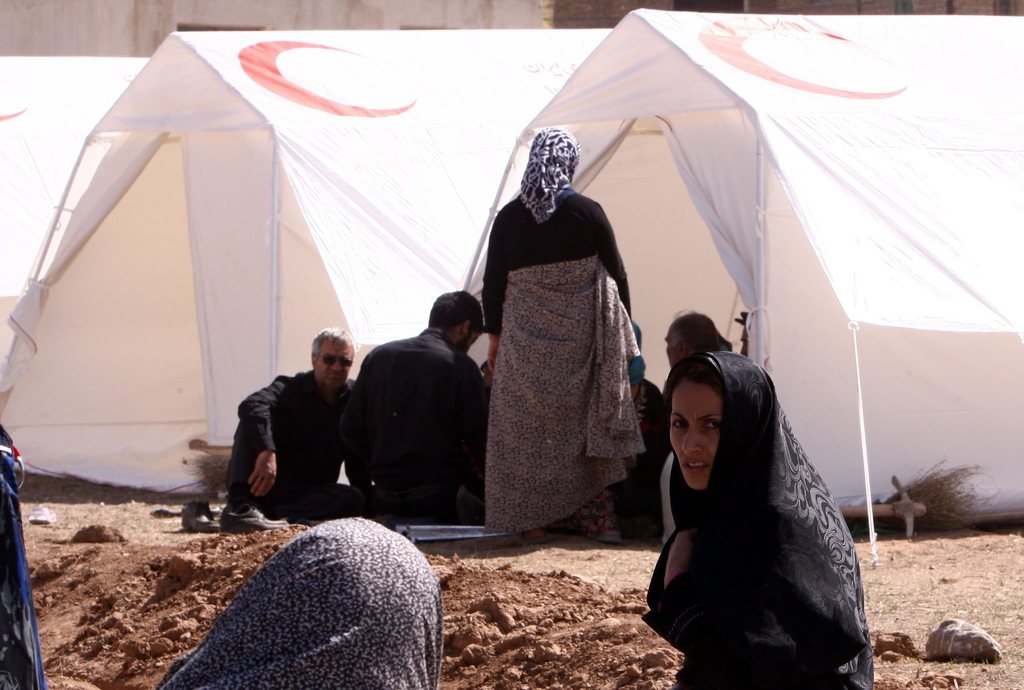
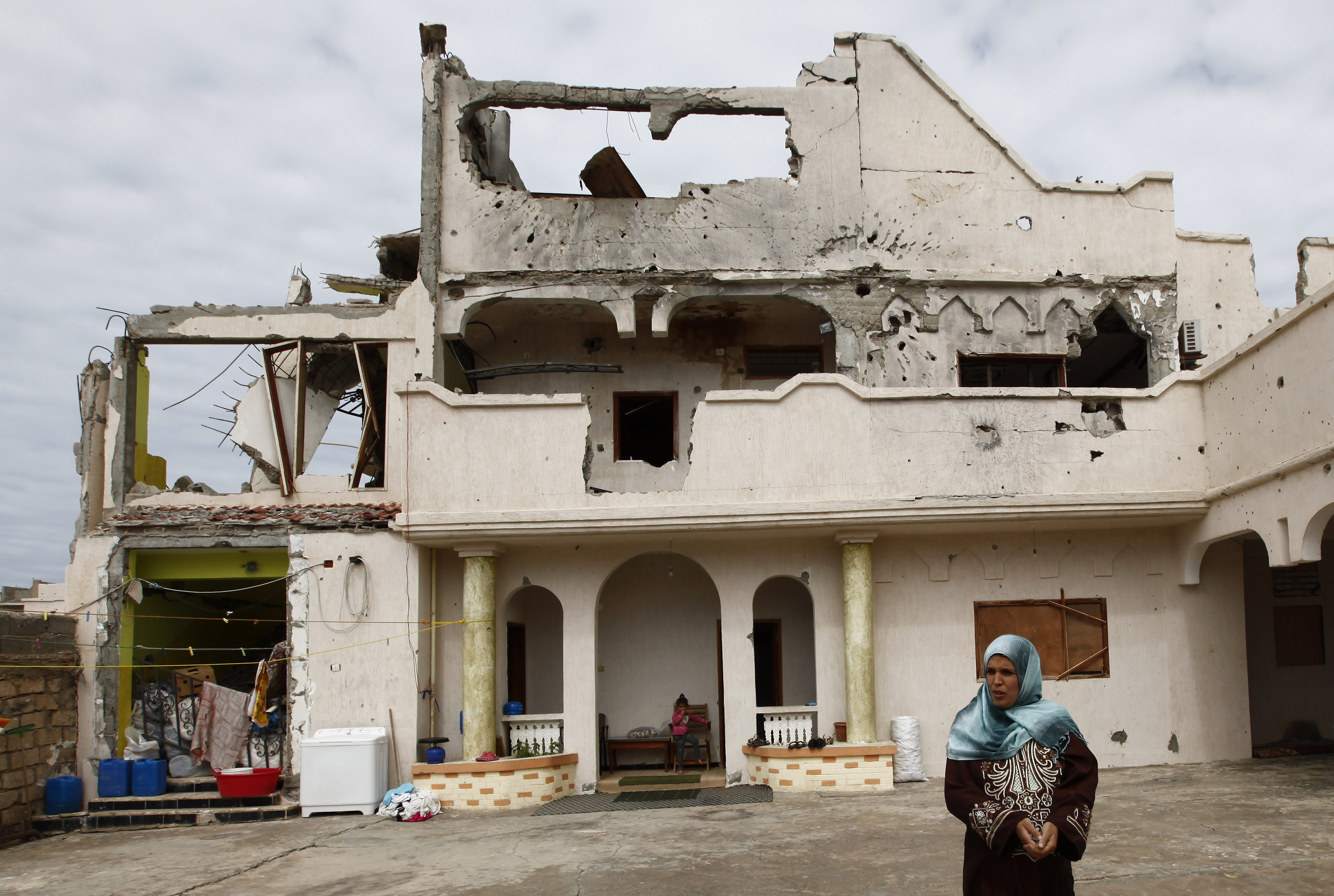
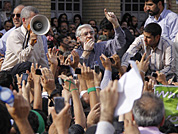
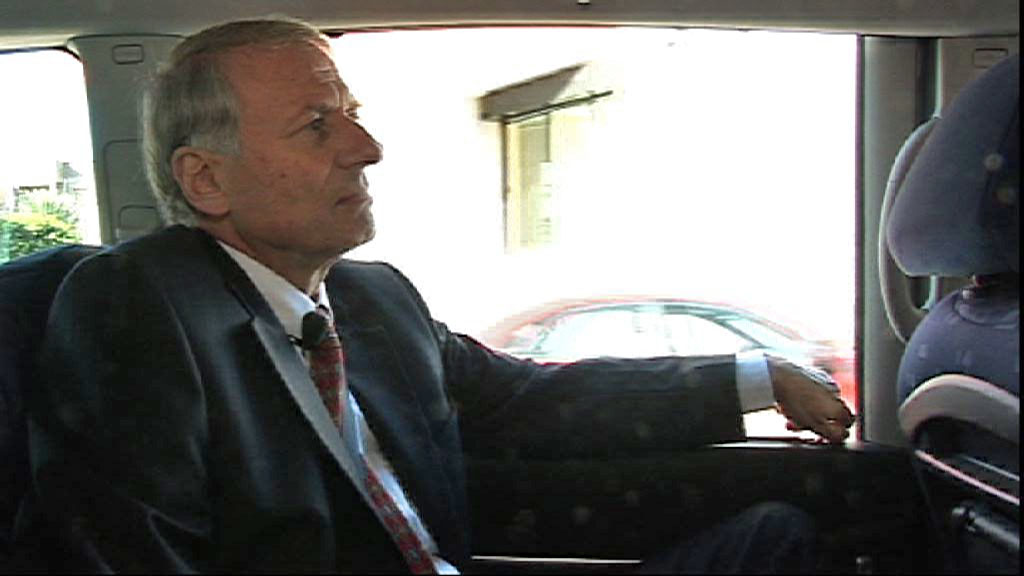
You can find an overview of ongoing debates with our journalists here. Please join us!
If you want to start a conversation about a topic raised in this article or want to report factual errors, email us at english@swissinfo.ch.